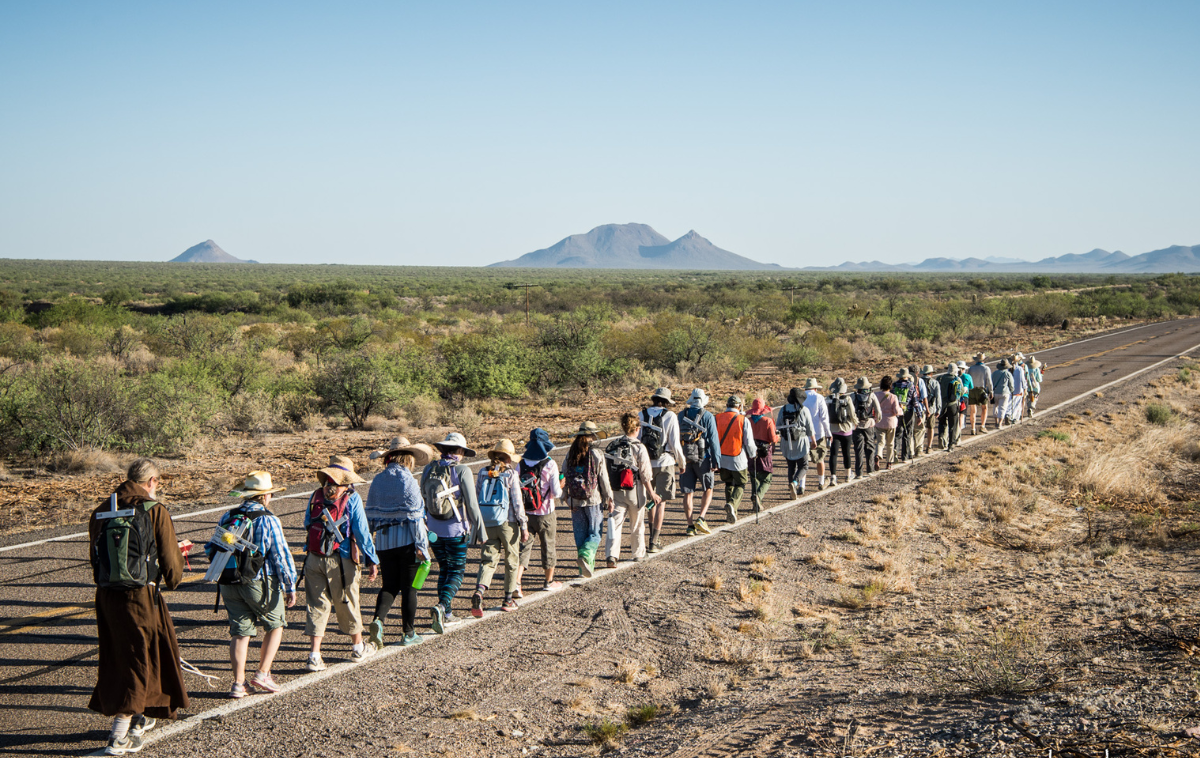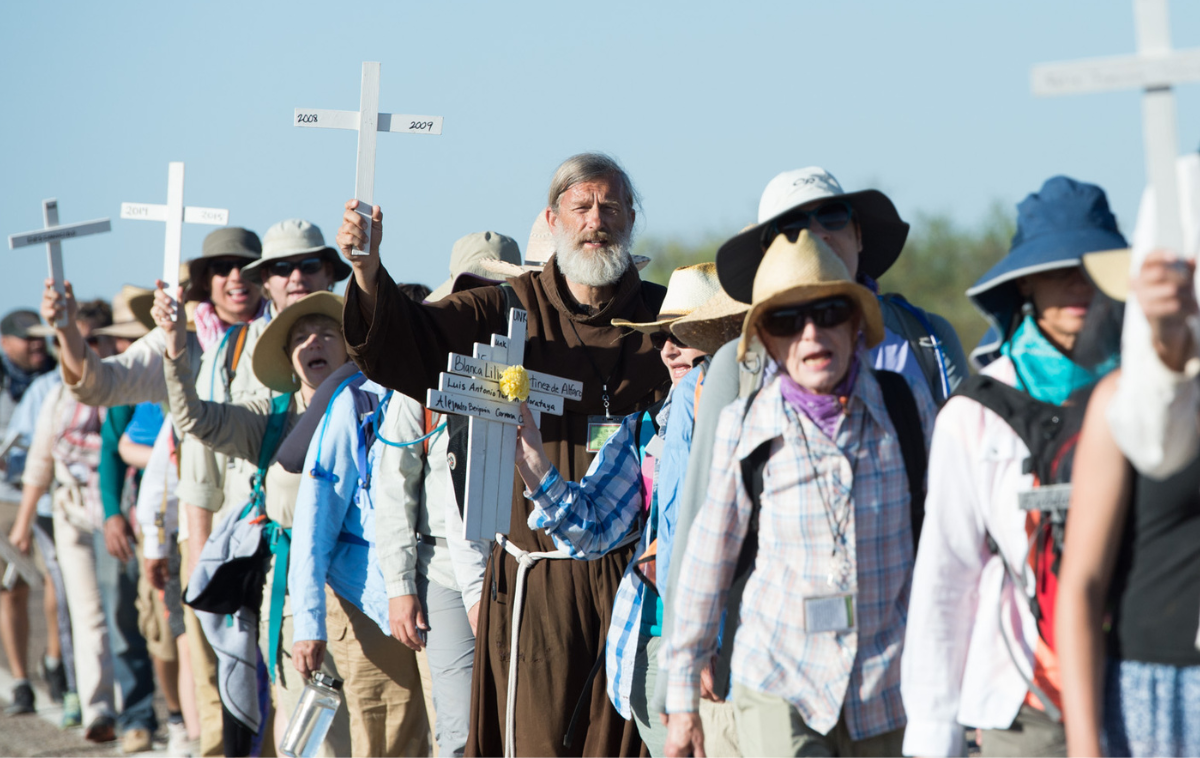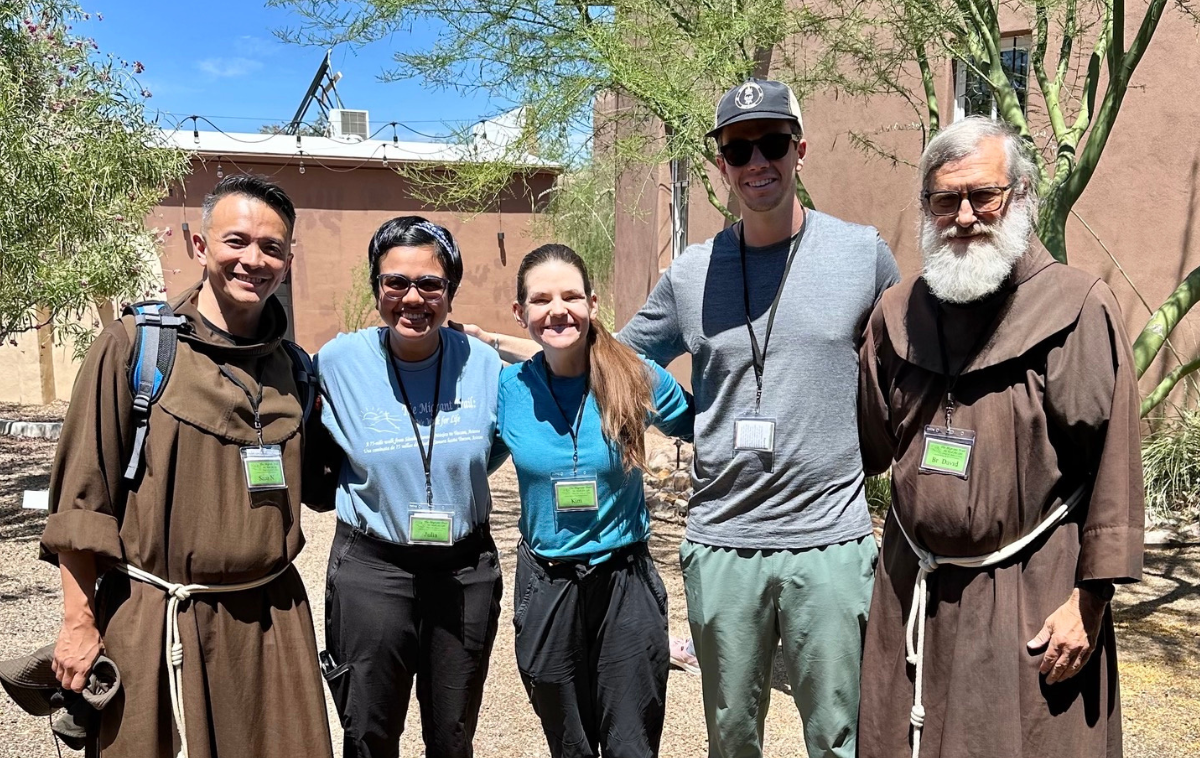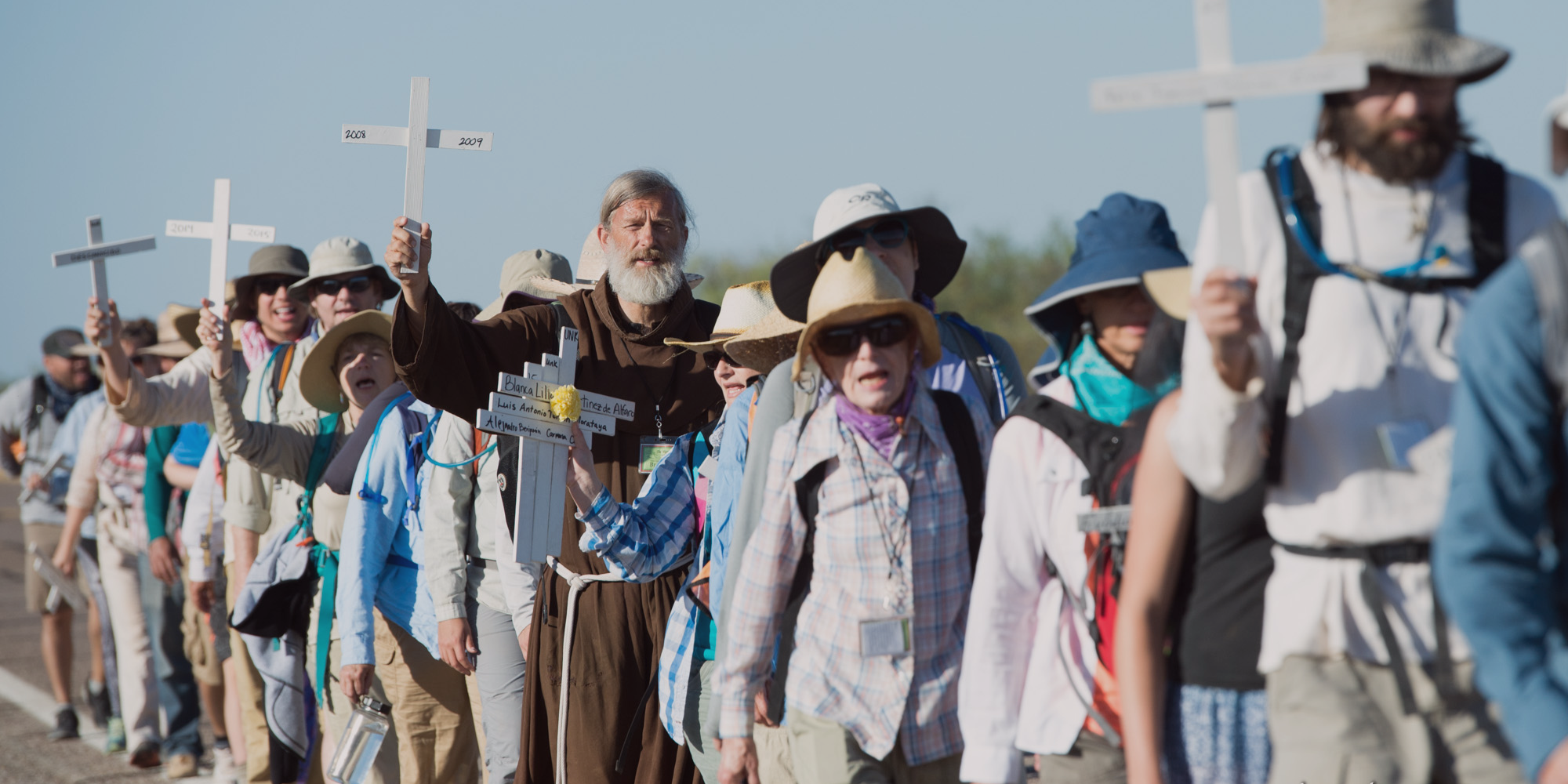In the desert, Franciscan friars provide humanitarian aid to migrants
Date Published: June 05, 2024
By Eli Pacheco
The hope is that migrants trekking along scorching desert byways will notice the blue flags waving in the desert sky, on 30-foot poles – and recognize them as beacons of hope.
At the base of those poles: 55-gallon industrial-grade plastic tanks of clean, drinkable water with spigots – humanitarian stations that organizations such as Humane Borders strategically place along migration routes, outside of park districts and other restricted areas.
Behind – or alongside, or filling – these tanks: Franciscan friars, ministering to men, women, and children amid a sojourn for freedom.
Among friars ministering to migrants is Br. David Buer, OFM, a lifelong sandals-on-the-ground servant to fellow humans in their greatest time of need.
“The Franciscan piece to this work has always been important to me,” said Br. David, who began as a Secular Franciscan in 1977 and made his simple profession in 1992. “The Lord designed me to be compassionate with those with no homes, no shelter or food.”
Here in the southernmost reaches of the Sonoran Desert, friars work among likeminded humanitarians who focus on preserving the lives of those in peril, separated from politics, yet mindful of policies.
“As I look back on my life, I see how Franciscans have helped in small, intentional ways,” Br. David said. “We must ask ourselves, ‘How can we renew ourselves? What can we do in this current social situation?’”
It is a delicate balance with human life at the forefront.

Ever year, people from various parts of the company come together to walk 75 miles through the Arizona desert to remember the people who have died along the U.S.-Mexico border. (Photo courtesy of Peter Jordan / PeterJordanPhoto.com)
A treacherous trek
Br. David arrived at San Xavier del Bac Mission in Tucson, Arizona, in 2005 and learned quickly of the realities there. Far too many migrants were dying in the desert, perishing from exposure to extreme conditions. Others died at the hands of those who preyed on their plight.
He describes people coming from as far as South and Central America.
“They bring what they can carry, and sometimes they lose that,” Br. David said. “South American migrants must pass through the Panama jungle. They must face the ruggedness of the terrain, being hassled by cartels.”
The Darién Gap, bridging Colombia and Panama, is one of the deadliest jungles on earth. It is remote and roadless, wrought with rapist and robbers, snakes and extortionists. Surviving it means you get to face countless perils ahead in traversing Central America and Mexico.
Once migrants arrive at the U.S. border, they are injured, sick, traumatized – or all three.
“These are human beings,” Br. David said. “St. Francis would encourage us to serve the immediate need, and that is what is happening. The church operates as a field hospital to attend to anyone in need.”

The Franciscan friars stand in solidarity with migrants and other people who are marginalized by society. (Photo courtesy of Peter Jordan / PeterJordanPhoto.com)
‘They are being forced out’
Pew Research data showed a record of nearly 250,000 encounters between U.S. Border Patrol and migrants in December 2023 – 26,000 higher than the previous mark. These trends reflect a return to historic highs like those seen in the early 2000s and again in 2019 prior to the pandemic. Trends in 2024 show no abatement.
Br. David sees the struggle of people leaving their present lives against their will – all out of necessity.
“A small-business owner might be forced to pay a stipend (as an extortion payment if they stay in their country),” he said. “Or (cartels) might be trying to recruit a son.
“We take pride in what we’ve done in welcoming all who find themselves on the journey. Most people do not want to leave. They are being forced out. And many organizations are recognizing that the humane thing is to assist these migrants.”
Volunteers in El Paso, Texas, live near and operate the Annunciation House. A part of an unofficial network of hospitality, it is a hub of advocacy and education for migrant concerns, too. Currently, it faces possible closure in the Texas legislature. In May, the Provincial Council of the Province of Our Lady of Guadalupe passed a statement of support for Annunciation House.
“They could use all the backing they could get,” Br. David said.
Groups such as Ajo Samaritans, Green Valley Sahuarita Samaritans, and Grupos Beta conduct their missions with varying degrees of assertiveness, in between known spots for border crossings. Their intent remains mostly aligned.
Each year, people raise visibility for those who have died attempting to cross into the U.S. through the Migrant Walk, a 75-mile trek from Sasabe, Sonora, Mexico, to Tuscon, Arizona.
Several Franciscans – including Br. David, Provincial Councilor Br. Sam Nasada, OFM, and postulant Jimmy Beh – took part in this year’s walk, held in late May.

Some of the participants in this year's Migrant Trail Walk (left to right): Provincial Councilor Br. Sam Nasada, Julia Pinto and Kim Wagner of Franciscan Mission Service, postulant Jimmy Beh, and Br. David. (Photo courtesy of Br. Sam)
It’s all part of the awareness and advocacy that define the friars’ presence in the desert.
“It’s to become aware of the need of migrants as human beings coming through the desert,” Br. David said. “In our faith, we can expect heavenly help, for God to put the right person put in our path.
“Anything else is a warning sign that we’re going the wrong way. The hope is that with more of a Franciscan presence, there can be more compassion, love, and care. Treatment of others as if we were in their shoes. If we do that, we’ll be more blessed.”

